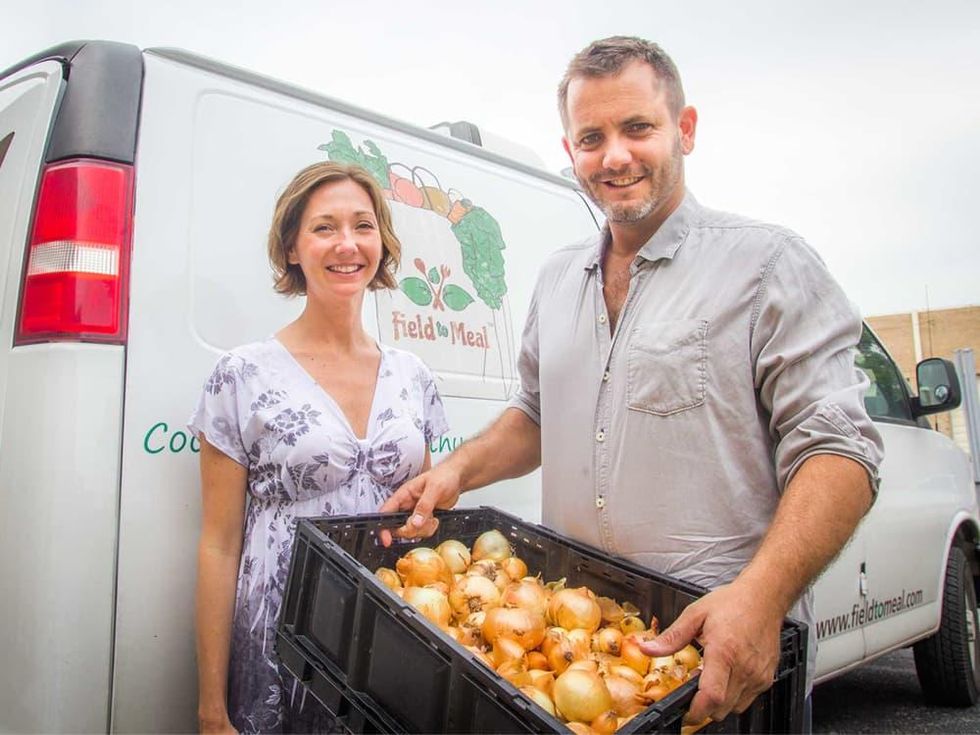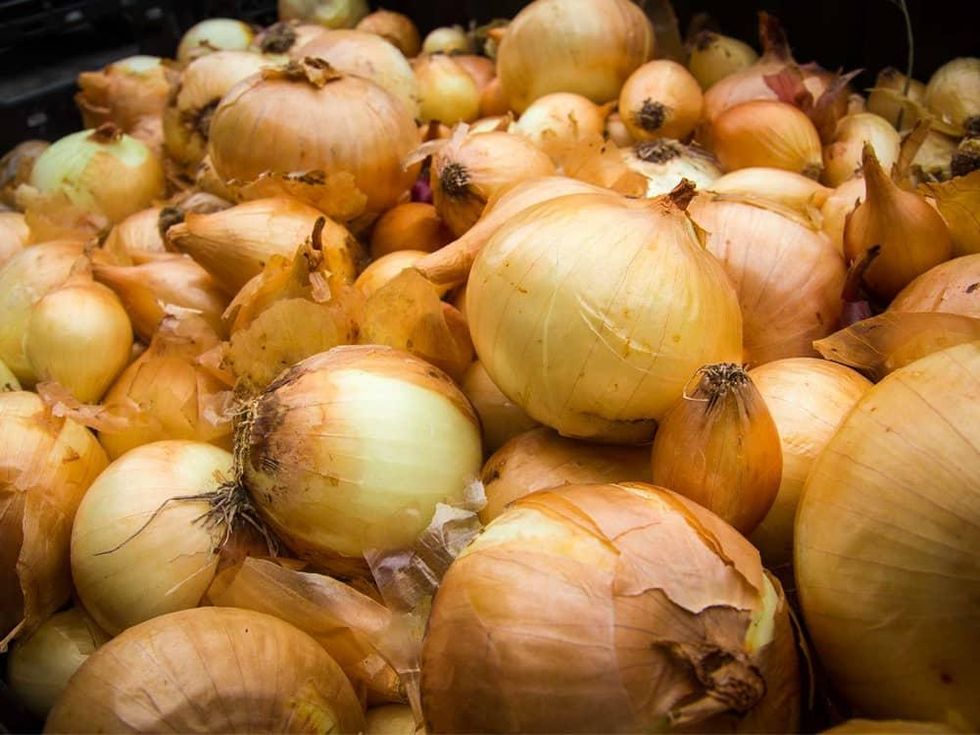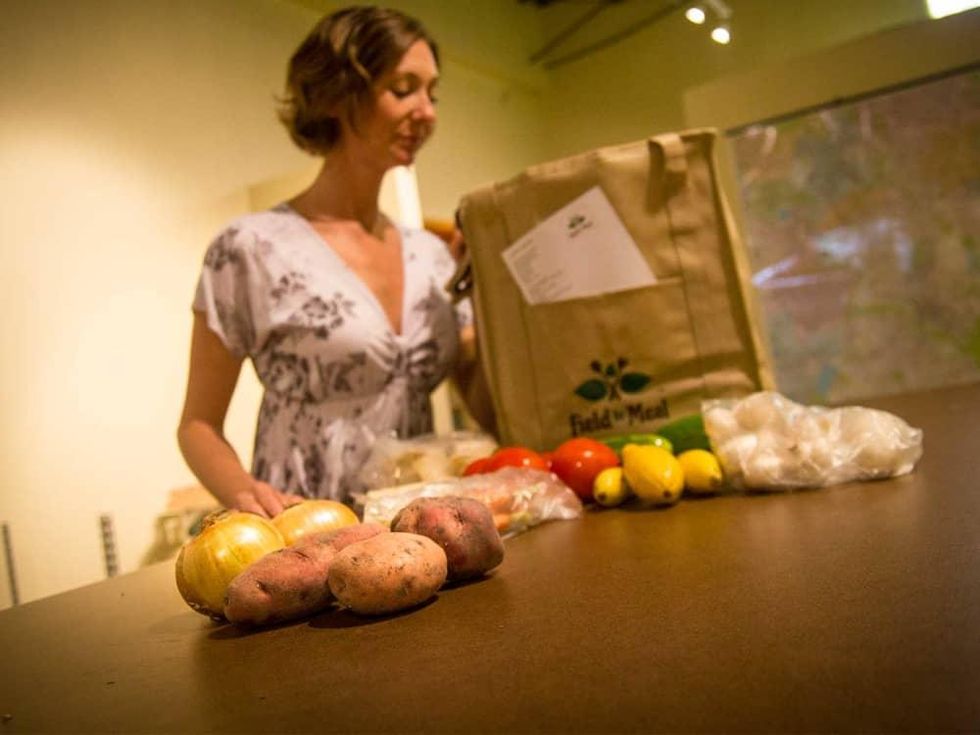The Farmer Diaries
Field to Meal serves up fresh local produce to Dallas with a delicious spin
Every year, my father and I face the same problem of finding a buyer when a crop is ready to harvest. Commercial growers negotiate sales up to a year in advance, and fulfill their order when the goods are ready. But as amateurs uncertain of our final harvest, we scramble when the potatoes, onions and melon we plant are ready to dig up.
Of the options that have been available for us to hustle our produce, some are less appealing than others. Farmers markets require me to wake up at 4 am on a Saturday and sit all day in the heat, without knowing if I'll sell it all or spend more money on gas than I make.
CSAs seem to depend too much on people's altruism, taxing subscribers' patience with more kale than they can eat in the winter and squash and okra in the summer. It can make even the most ardent supporter of local agriculture tire and drop out.
Our harvests are too small for grocery stores to trifle with. And I hate asking local restaurant owners to go through the trouble of altering their standing orders with their wholesalers, just for a week's of supply potatoes and onions which no one will notice as being especially farm fresh or different.
Usually, after a lot of work and hunting around, we find several buyers to take our potatoes and onions at a reduced cost. But every year, it's someone different, and there's never certainty we won't wind up with a truckload of overripe produce fit for nothing but the compost heap.
What the small farmer in our situation needs is someone to aggregate local harvests and turn them into something that buyers want, in the quantities they want. It would help if they could introduce the market to more of the things we can grow but for which there's little demand because people are unsure of how to cook such novel foods, like rhubarb, parsnips and Swiss chard.
If we could find someone to guide us on what to plant, and to promise to buy it weeks or months later when it's ready to harvest, then we might become profitable even if we're not growing crops on an industrial scale.
Last summer I met Amy Arrambide and Sam Roberts of Dallas-based Field to Meal, a business startup that bridges the gap between local farmers and the people who want their produce with a weekly delivery service that evolves the CSA concept into a more feasible form.
Rather than take a boatload of kale and divvy it up among all subscribers, Arrambide creates recipes that exploit what's available that week from all the farmers they work with. They then portion out the produce so that it matches what each recipe calls for.
When customers receive a bag of lettuce, okra, eggs, green beans, spices, strawberries, choice meats and whatever else is in season, they have everything they need for the week's worth of recipes spelled out.
"The business is built around two concepts mainly," Roberts says. "We want to encourage people to eat better food, and by better I mean a locally sourced, organic and balanced diet.
"The other is convenience. We want to remove the obstacles of eating well, such as not knowing what to eat, how to cook it or feeling that it's too expensive. We remove that by providing pretty much everything you need to cook your meals — all the raw ingredients except for oil, salt and pepper."
Field to Meal delivers about 130 meals a week to customers in the Dallas area. They accommodate all, from singles to large families, for up to five meals a week. The menu changes weekly. Recipes have included pot roast, tacos, spaghetti, ravioli, curries and Tex-Mex dishes, all of which can be prepared in 30 minutes or less. Meals cost from $6 to $9.
They try to source everything from within a 50-mile radius of Dallas-Fort Worth: cheese and yogurt from Full Quiver in Kemp, honey from Ovilla Honey and C and J farms in Ennis, chicken and turkey from Fran's Fryers in Red Oak, and hormone-free, grass-fed beef from Diamond D Ranch in Red Oak. Much of their produce comes from Garden Harvest in Ovilla and a handful of small farmers in Midlothian and around Waxahachie.
That has included my father's onions and potatoes; last year, customers also got a sampling of the Israeli melons I harvested after Garden Cafe in East Dallas bought the first round.
Unlike similar concepts such as Blue Apron and Hello Fresh, both of which are larger and offer nationwide delivery, Field to Meal stresses local.
"We're similar in that we're offer meal planning services, but what sets us apart is our emphasis on locally grown, organic ingredients produced by small farmers in the North Texas," Roberts says. "Our meals are also more home-style, and we offer both home delivery or you can pick up meals from our retail store in Waxahachie, and soon in Rockwall. We're just more in touch with the local flavor."
Arrambide and Roberts bring complementary talents to their venture. Arrambide, who grew up south of Dallas, creates the recipes and networks with farms. Roberts is a former financial planner from Australia who moved to Texas to marry Arrambide.
The concept of Field to Meal comes in part from Arrambide's experience on her aunt's farm near Waxahachie.
"I just saw how much work she had, and how difficult running a CSA was for her, and with crop failures one time and then way too much spinach another time, and trying to keep everything sold — it just wasn't sustainable," she says. "And then customers who wanted to support her would come back and say, 'We love supporting you and buying from you, but how do you cook this?' It was out of that that I started trying to find a better way.
"I've also had this passion that the meat industry was out of hand, and that industrial farming is destructive. I wanted to do something about these problems. Eventually all these ideas just sort of coalesced as Sam and I talked about them and Field to Meal was the result."



